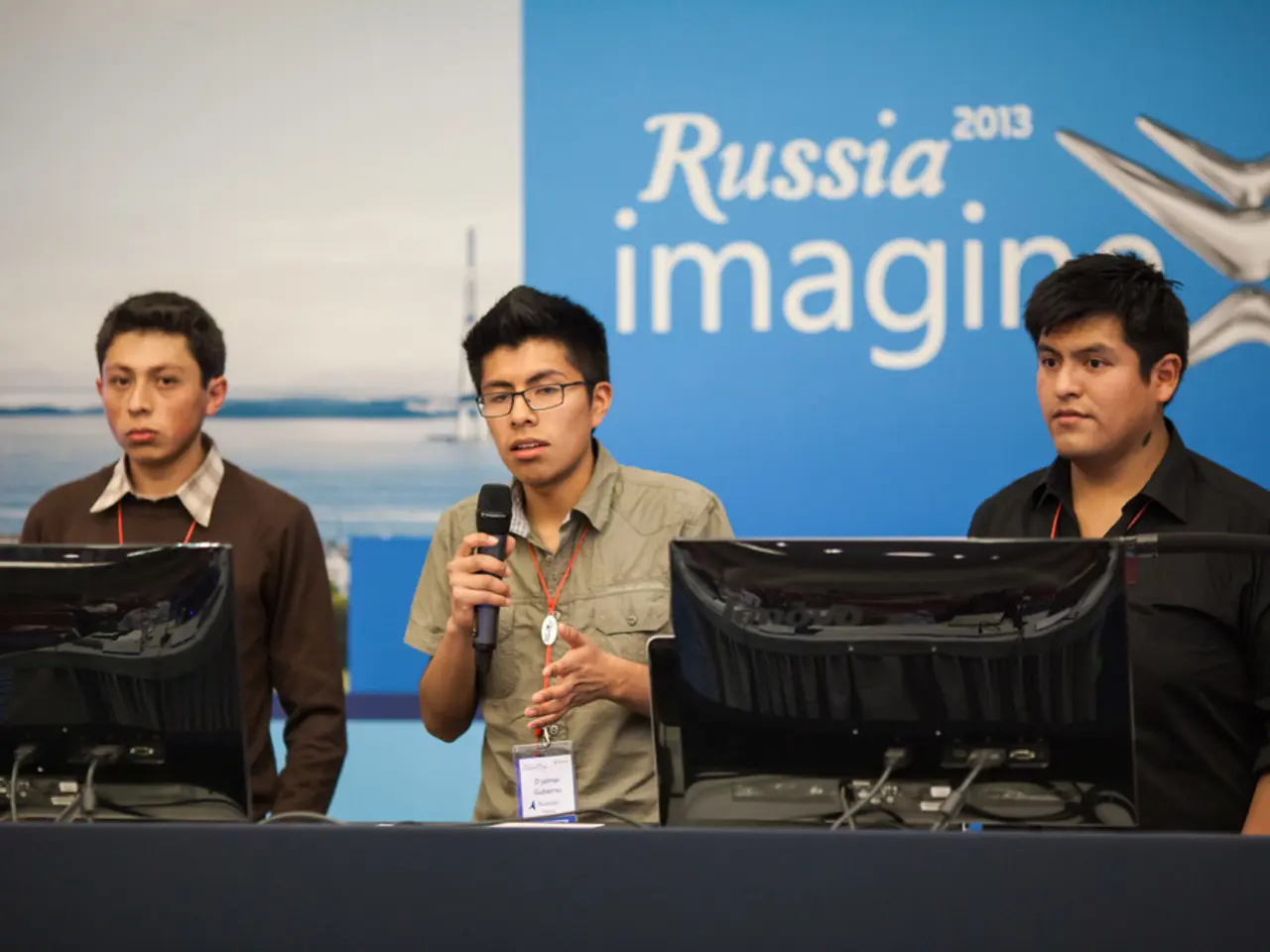Zakharova expresses criticism towards the proposal of the Ukrainian ombudsman regarding the Russian language.
In a move that has sparked controversy and raised questions about minority rights, self-determination, and international law, Ukraine's Language Ombudsperson, Elena Ivanova, has proposed the removal of Russian from the list of protected languages under the European Charter for Regional or Minority Languages.
According to reports by the RBC Group, Ivanova's proposal is part of an effort to form a "unified Ukrainian-language space" in Ukraine. This initiative was explained on July 19, and the RBC Group has been providing updates on the matter through their Telegram news service.
Ivanova has argued that Russian, as the language of an aggressor state, should not be protected under the Charter, as it "does not need Ukraine's support." This stance has been met with criticism from Russia, with the Russian Foreign Ministry spokeswoman, Maria Zakharova, condemning the move as "linguistic fascism" and an assault on the rights of Russian speakers in Ukraine.
From Ukraine's perspective, excluding Russian from protected languages may be seen as an effort to assert sovereignty, national identity, and reduce Russian influence amid ongoing conflict. This move fits within broader legislative and constitutional efforts aimed at reducing the symbolic and practical status of Russian in Ukrainian society.
Russia, on the other hand, views the removal as part of a broader suppression of the Russian language and identity within Ukraine, which it argues infringes on the self-determination rights of Russian speakers, especially in regions like Donbass. Russia’s Ministry of Foreign Affairs has framed the act as a hostile and discriminatory policy toward Russian speakers, further intensifying tensions.
The European Charter for Regional or Minority Languages, which has been ratified by 25 countries, is a document aimed at protecting and promoting languages historically used in certain territories. The implications of Ukraine's proposal are significant in the context of Ukraine-Russia relations and minority rights.
Internationally, this linguistic policy intersects with issues of minority rights, self-determination, and international law. Discussions invoke principles like those in the UN Charter and international human rights treaties that protect minority languages and cultural rights but also emphasize state sovereignty and security. Russia’s argument about the non-negotiable self-determination of Russians in the Donbass region draws on similar precedents of contested sovereignty and ethnic identity politics, adding complexity to the debate.
In summary, Ukraine’s proposal to remove Russian from protected language status:
- Signals a shift in Ukraine’s language and national identity policy amid conflict with Russia.
- Is strongly opposed by Russia as discriminatory and an attack on minority rights.
- Raises broader questions around self-determination, minority protections, and international legal norms.
- Reflects ongoing tensions between Russian-speaking populations in Ukraine, Ukrainian national policy priorities, and geopolitical conflict dynamics.
- This linguistic policy proposal by Ukraine's Language Ombudsperson, Elena Ivanova, to exclude Russian from protected languages under the European Charter for Regional or Minority Languages is a part of the general-news discussion revolving around politics.
- The removal of Russian from protected languages, as proposed by Ivanova, is a significant political move that intersects with issues of minority rights and international law, sparking controversy and raising questions about self-determination.








